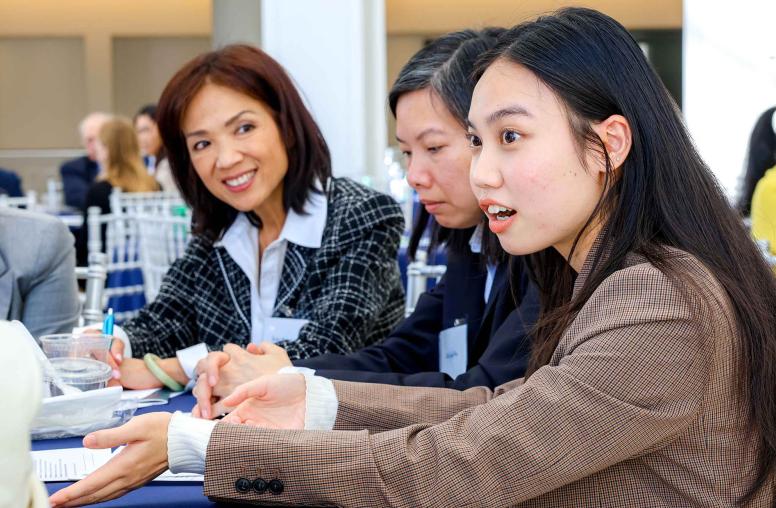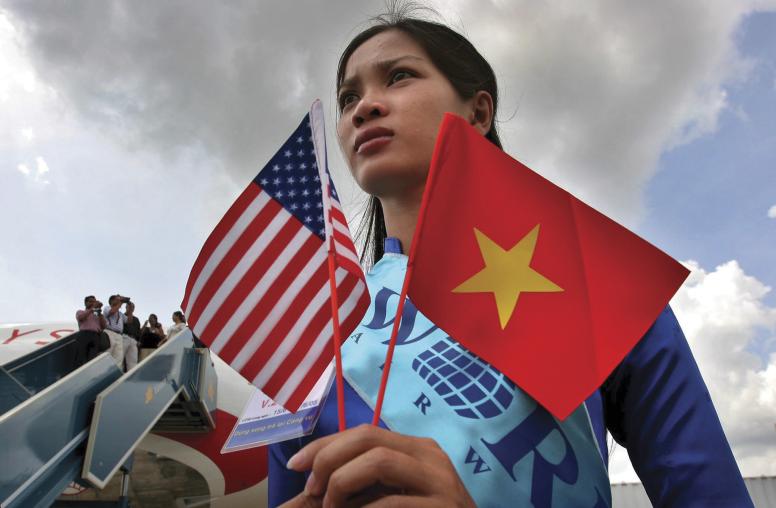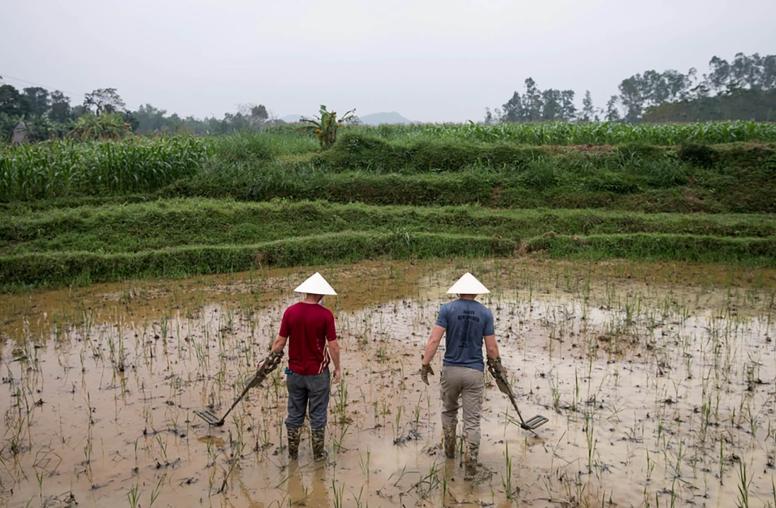Nearly 50 years after the end of the Vietnam War, families from all sides of the conflict are still searching for remains of loved ones through both official and personal channels. In 2021-22, as part of the Vietnam War Legacies and Reconciliation Initiative, USIP interviewed American and Vietnamese families who have recently received or identified wartime remains.

Among those interviewed was the family of Paul Charvet, a U.S. Navy Commander lost off Hôn Mè island in northern Vietnam. A Vietnamese team trained by the United States recovered his remains in 2021 — one of the 729 U.S. servicemen found and identified through U.S.-Vietnamese cooperation after the war. This interview of Paul’s sisters takes place the day after his remains returned home after being lost for 54 years.
The remains of U.S. Air Force pilot Richard Kibbey were found after more than 50 years with help from local Vietnamese. In an interview with USIP, his son tells the story of the healing it has brought to his family.
After years of cooperation between Vietnam and the United States for the fullest possible accounting of the 1,973 Americans listed as missing in action at the end of the war, in 2021 the U.S. Department of Defense and the Vietnamese Ministry of National Defense launched a joint program to expand efforts to find the approximately 300,000 Vietnamese soldiers who are still missing. USIP’s series of video interviews included Vietnamese families who have identified family members lost in the war.
This video features the family of Nguyen Van Chuong and Nguyen Van De, two brothers whose remains were recently identified.
The family of Trần Văn Trược of Bình Dương province tells the story of searching for his remains decades afterwards and what this resolution has meant to them.
You can view all of the families’ interviews here.



